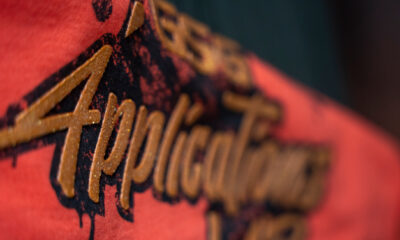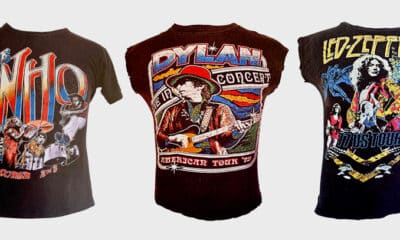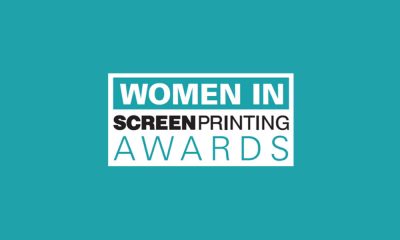“WE’RE LIVING through a huge change in the way that everything is consumed, and I want to be unapologetically on the front line of it,” says Elliott Gress. The owner/operator of The Naptown Collective is fascinated by the world of e-commerce and, above all, how he can make the experience better every day.
“I see a lot of people who are just putting stuff out because they realize e-commerce allows them to make top dollar and have to do the least amount of stuff,” he says, “and I just think that’s the wrong way to look at it.”

The Indianapolis native stumbled across printmaking and screen printing as a student at the Art Academy of Cincinnati while pursuing a degree in painting. Through one of his professors, he found work as a shop manager at The Lodge, an artists’ incubation space in nearby Dayton, Kentucky, where he settled full time after graduating.
About 50 percent of his work is designing and producing merchandise and promotional materials for local brands; the other 50 percent comes from selling his own branded apparel, art, and accessories online.
The Naptown Collective’s name was inspired by two sources: An old nickname for Indianapolis that was originally a jab at the city’s perceived reputation for being a sleepy place; and Gress’s desire to make his brand feel inclusionary and engaging. The Naptown brand centers on skateboarding and art culture, and it began to take shape as Gress realized the disconnect between his chosen career path – fine art – and the people with whom he spends his time.
Advertisement
“E-commerce has been liberating for me because I can work in my own space and I can do client work, and I can still pursue my brand and make sales when I’m asleep,” Gress says. “It’s really taken the chains off of what it means to be a young entrepreneur.”
Gress’s mentality is that there’s always room for improvement, whether it’s in terms of efficiency, conversion, or customer experience. Always willing to try, fail, and try again, he says, “I still feel like a student every single day.” He calls himself a curious person, stressing the importance of asking questions and never being afraid to admit you don’t know everything: “You need to be honest enough to ask yourself, ‘What am I missing here? What can be built upon?’” Over the years, he’s learned the importance of taking better photos, offering sizing charts, using tools such as ShipStation to organize orders, and more.
He’s also (as of this writing) in the process of switching from Big Cartel to Shopify. He says Big Cartel is great for a shop that’s just starting out; it’s consumer-friendly and easy to use. But Naptown has reached the point where Gress is ready for “the next level.” While Shopify takes more expertise to operate, he notes that helpful features abound, from point-of-sale and MailChimp integrations to scroll-over animation, more room for inventory, and the ability to code the shop right into one’s website.

Gress’s biggest priority is making e-commerce feel like an experience, and he says it’s the little details that count. Investing in packaging, for example, makes a customer’s experience memorable even though you’re not with them when they receive their order in the mail. Gress prints all his mailers with his logo and puts his apparel in its own bag with a hang tag and a sticker. “These little extra things ultimately cost me a little bit more per item,” he says, “but I really, truly believe that’s what allows me to have these customers that come back four, five, six, seven times.”

 Case Studies2 months ago
Case Studies2 months ago
 Art, Ad, or Alchemy2 months ago
Art, Ad, or Alchemy2 months ago
 Andy MacDougall2 months ago
Andy MacDougall2 months ago
 Columns3 weeks ago
Columns3 weeks ago
 Editor's Note2 weeks ago
Editor's Note2 weeks ago
 Marshall Atkinson2 weeks ago
Marshall Atkinson2 weeks ago
 Thomas Trimingham2 months ago
Thomas Trimingham2 months ago
 News & Trends1 month ago
News & Trends1 month ago
















